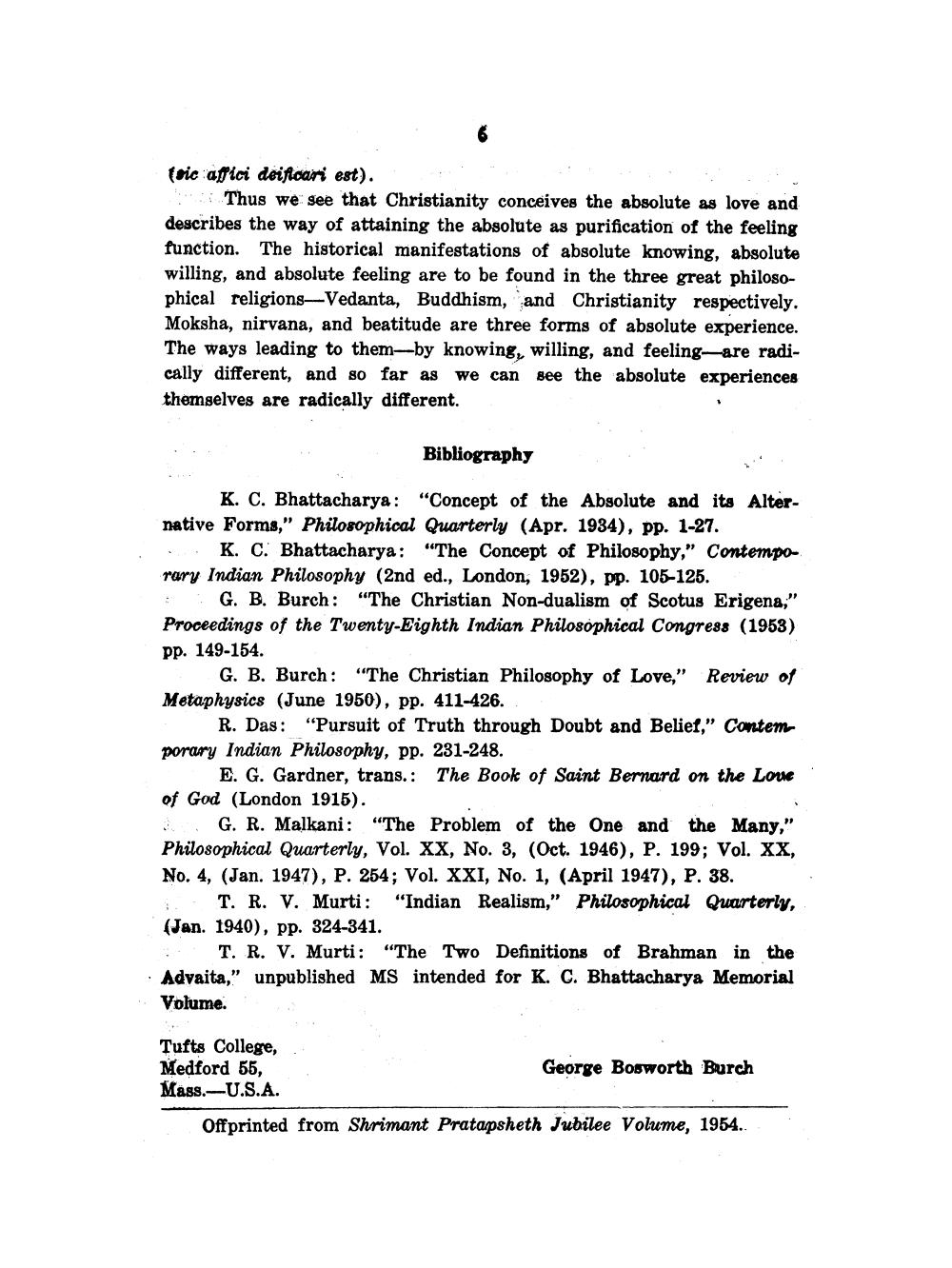Book Title: Absolute Feeling Author(s): Georg Burch Publisher: Georg Burch View full book textPage 6
________________ (sic affici deificari est). Thus we see that Christianity conceives the absolute as love and describes the way of attaining the absolute as purification of the feeling function. The historical manifestations of absolute knowing, absolute willing, and absolute feeling are to be found in the three great philosophical religions--Vedanta, Buddhism, and Christianity respectively. Moksha, nirvana, and beatitude are three forms of absolute experience. The ways leading to them--by knowing, willing, and feeling-are radically different, and so far as we can see the absolute experiences themselves are radically different. Bibliography K. C. Bhattacharya: "Concept of the Absolute and its Alternative Forms," Philosophical Quarterly (Apr. 1934), pp. 1-27. K. C. Bhattacharya: "The Concept of Philosophy," Contemporary Indian Philosophy (2nd ed., London, 1952), pp. 105-125. : G. B. Burch: "The Christian Non-dualism of Scotus Erigena;" Proceedings of the Twenty-Eighth Indian Philosophical Congress (1953) pp. 149-154. G. B. Burch: "The Christian Philosophy of Love," Review of Metaphysics (June 1950), pp. 411-426.. R. Das: "Pursuit of Truth through Doubt and Belief," Comtem porary Indian Philosophy, pp. 231-248. E. G. Gardner, trans.: The Book of Saint Bernard on the Love of God (London 1915). G. R. Malkani: "The Problem of the One and the Many," Philosophical Quarterly, Vol. XX, No. 3, (Oct. 1946), P. 199; Vol. XX, No. 4, (Jan. 1947), P. 254; Vol. XXI, No. 1, (April 1947), P. 38. T. R. V. Murti: "Indian Realism," Philosophical Quarterly, (Jan. 1940), pp. 324-341. T. R. V. Murti: "The Two Definitions of Brahman in the Advaita," unpublished MS intended for K. C. Bhattacharya Memorial Volume. Tufts College, Medford 55, George Bosworth Burch Mass.-U.S.A. : Offprinted from Shrimant Pratapsheth Jubilee Volume, 1954...Page Navigation
1 ... 4 5 6
